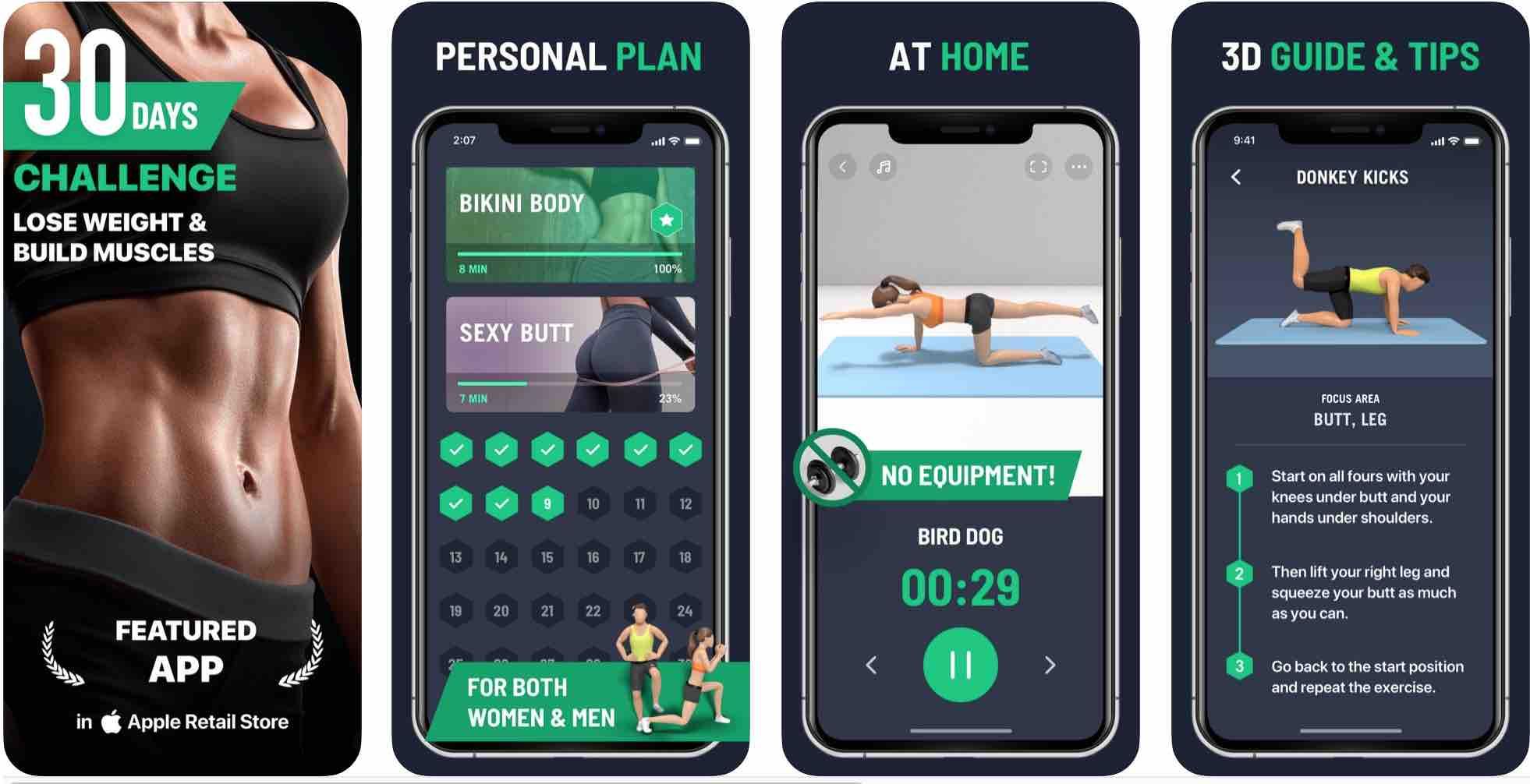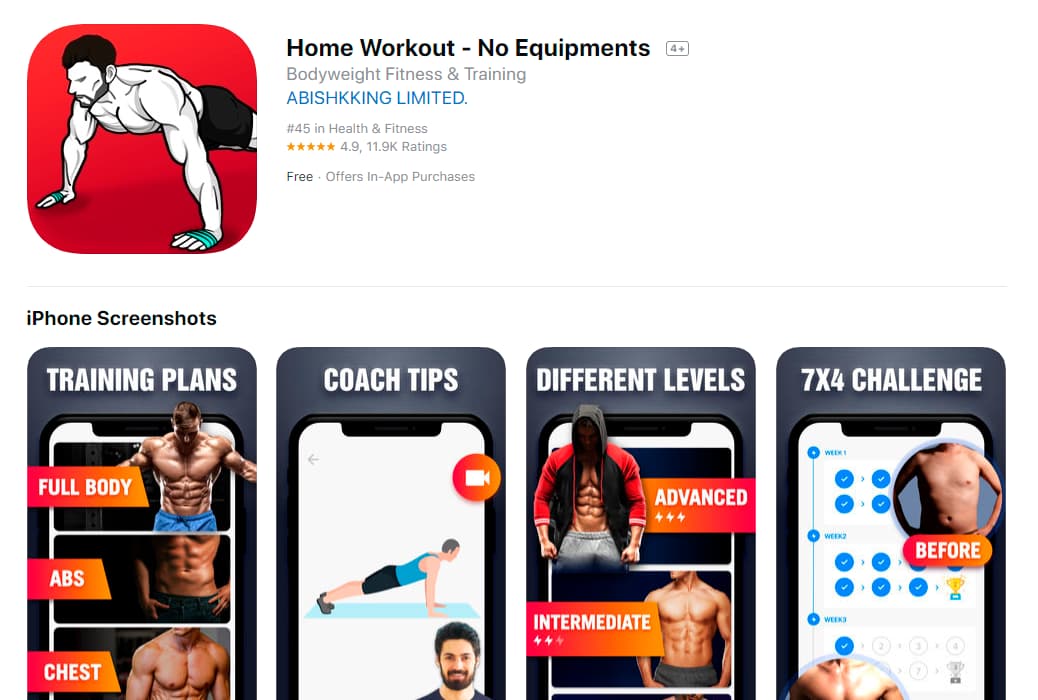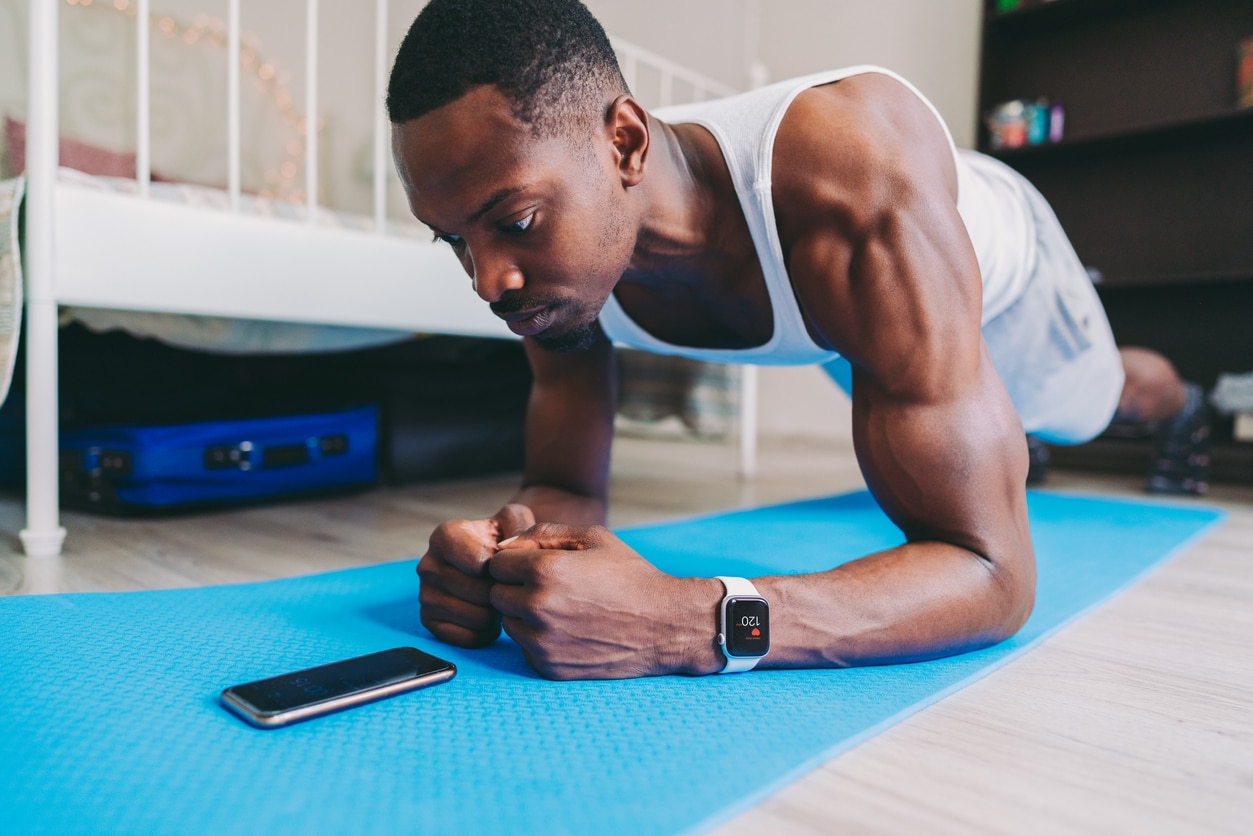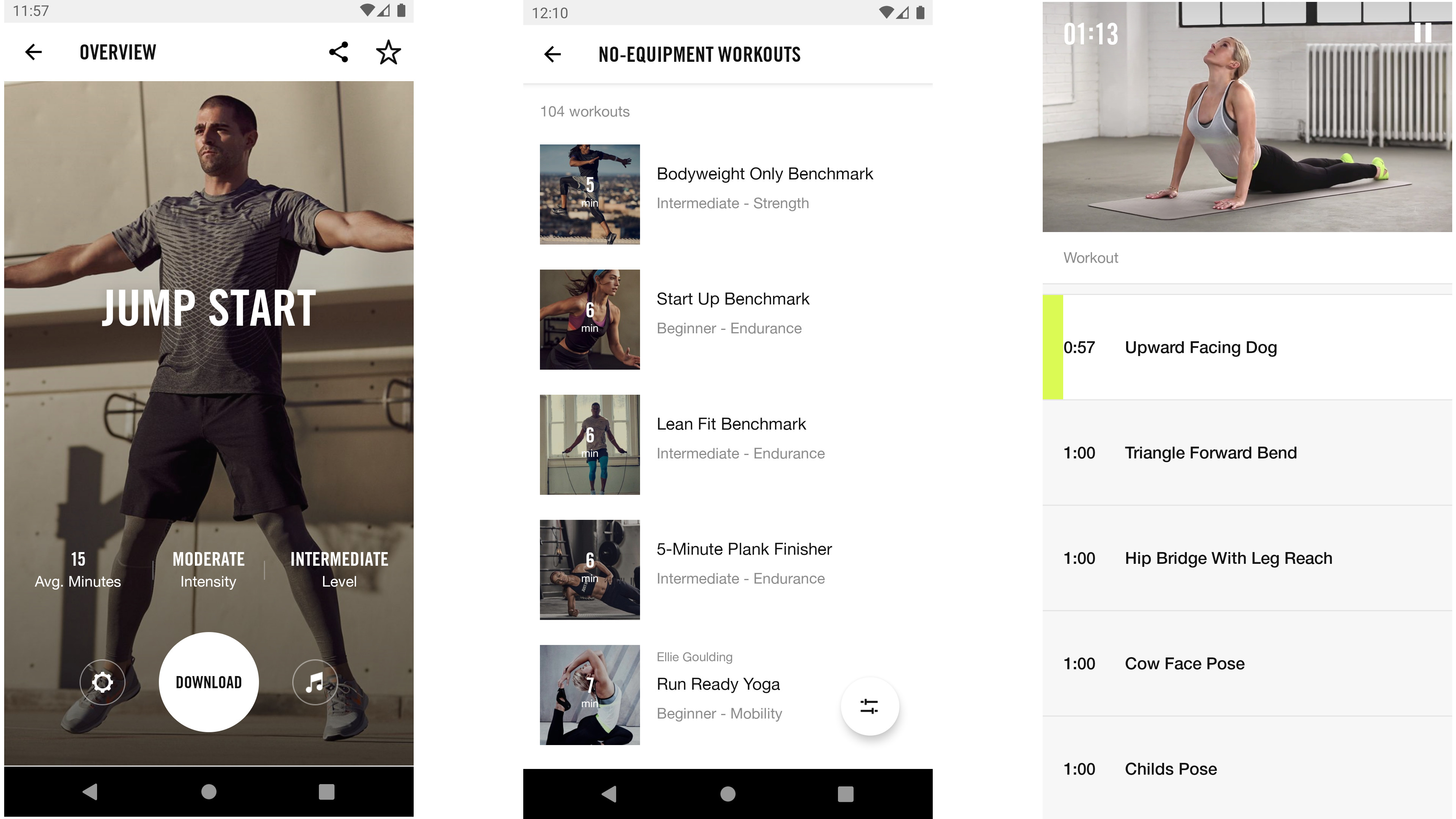Home workout apps are revolutionizing the fitness landscape, offering convenience, affordability, and personalized guidance for achieving fitness goals. With a plethora of features and benefits, these apps cater to a wide audience, empowering individuals to embark on their fitness journeys from the comfort of their own homes.
From tailored workout plans to real-time tracking and progress monitoring, home workout apps provide a comprehensive fitness solution. They empower users to customize their workouts, track their progress, and stay motivated, making fitness accessible and enjoyable for all.
Introduction to Home Workout Apps

Home workout apps have become increasingly popular in recent years, offering a convenient and accessible way to stay fit and healthy. These apps provide guided workouts that can be done at home, without the need for expensive gym memberships or equipment.
According to a study by the American College of Sports Medicine, the use of home workout apps has increased by 45% in the past year. This growth is attributed to the convenience, affordability, and effectiveness of these apps.
Target Audience
Home workout apps are designed for a wide range of users, including:
- Individuals who are new to fitness and want to get started with a structured workout routine.
- People who have limited time to exercise and need a convenient way to fit workouts into their busy schedules.
- Individuals who travel frequently and want to maintain their fitness routine while on the go.
- People who have physical limitations or injuries that prevent them from attending a gym.
Features and Functionality of Home Workout Apps
Home workout apps are designed to provide users with a convenient and effective way to exercise from the comfort of their own homes. These apps offer a wide range of features and functionalities to help users achieve their fitness goals.
Key Features, Home workout apps
Common key features found in home workout apps include:
- Personalized workouts:Apps offer customized workouts tailored to the user’s fitness level, goals, and preferences.
- Variety of workouts:Apps provide a diverse selection of workouts, including strength training, cardio, yoga, Pilates, and more.
- Video demonstrations:Step-by-step video demonstrations guide users through each exercise, ensuring proper form and technique.
- Progress tracking:Apps track user progress, including calories burned, workouts completed, and weight loss.
- Community support:Some apps offer community forums and support groups where users can connect with others and share their experiences.
Types of Workouts
Home workout apps offer a wide range of workouts to suit different fitness levels and preferences. These workouts may include:
- Strength training:Bodyweight exercises, dumbbell exercises, resistance band exercises
- Cardio:Running, jumping jacks, burpees
- Yoga:Sun salutations, downward-facing dog, child’s pose
- Pilates:Hundred, roll-up, leg circles
- Dance:Zumba, hip-hop, salsa
Personalization and Tracking
Home workout apps allow users to personalize their workouts based on their individual needs and goals. Personalization options may include:
- Fitness level:Users can select workouts appropriate for their current fitness level, from beginner to advanced.
- Goals:Users can specify their fitness goals, such as weight loss, muscle gain, or improved cardiovascular health.
- Preferences:Users can choose workouts that align with their preferences, such as workout duration, intensity, and equipment availability.
Tracking capabilities in home workout apps help users monitor their progress and stay motivated. These apps may track:
- Calories burned:Apps estimate the number of calories burned during each workout.
- Workouts completed:Apps record the number of workouts completed, providing a sense of accomplishment.
- Weight loss:Apps track weight loss progress over time, helping users stay on track.
Benefits of Using Home Workout Apps

Home workout apps have gained immense popularity due to their numerous advantages. They offer convenience, affordability, and accessibility, making them a great option for individuals looking to achieve their fitness goals.
Effectiveness
Research studies have demonstrated the effectiveness of home workout apps in improving fitness levels. A study published in the Journal of the American Medical Association (JAMA) found that participants who used a home workout app for 12 weeks experienced significant improvements in body composition, cardiovascular fitness, and muscular strength.
Convenience
Home workout apps provide the ultimate convenience by allowing users to work out from the comfort of their own homes. They eliminate the need for commuting to the gym, saving time and effort. Users can choose from a wide variety of workouts tailored to their fitness levels and goals, and they can work out at any time that suits them.
Affordability
Compared to traditional gym memberships, home workout apps are highly affordable. Many apps offer free or low-cost subscriptions, making them accessible to a wide range of individuals. This cost-effectiveness allows users to save money while still achieving their fitness goals.
Accessibility
Home workout apps are highly accessible, as they can be used on smartphones, tablets, and laptops. This makes them a great option for individuals with busy schedules, limited mobility, or who live in areas without access to gyms.
Challenges and Limitations of Home Workout Apps
While home workout apps offer numerous benefits, they also come with certain challenges and limitations.
One of the main challenges is the lack of in-person guidance and motivation. Unlike gym workouts with a personal trainer, home workouts rely solely on the user’s self-motivation and discipline.
Lack of In-Person Guidance and Motivation
- Users may find it difficult to stay motivated and consistent without the support and encouragement of a trainer.
- They may also lack the expertise to perform exercises correctly, leading to potential injuries.
Importance of Proper Form and Injury Prevention
Proper form is crucial when performing exercises to avoid injuries. Home workout apps often provide instructions and videos, but it’s essential for users to pay close attention and ensure they are executing exercises correctly.
- Incorrect form can strain muscles, joints, and ligaments, leading to discomfort or even severe injuries.
- Users should consult with a healthcare professional or certified trainer if they have any concerns about their form or underlying health conditions.
Market Analysis of Home Workout Apps
The market for home workout apps is experiencing significant growth due to the increasing popularity of home workouts and the convenience they offer. The market size is projected to reach USD 15.23 billion by 2027, growing at a CAGR of 11.5% during the forecast period.
Key players in the home workout app market include Nike Training Club, Peloton, Fitbit, and Strava. These companies hold a significant market share and offer a wide range of features, including personalized workout plans, video demonstrations, and tracking tools.
Competitive Landscape
The competitive landscape of the home workout app market is intense, with several established players and emerging startups vying for market share. The key competitive factors include the breadth of workout offerings, the quality of content, the user experience, and the integration with wearable devices.
Emerging technologies, such as artificial intelligence (AI) and virtual reality (VR), are expected to shape the future of the home workout app market. AI can be used to personalize workout plans and provide real-time feedback, while VR can create immersive workout experiences.
User Experience and Design Considerations: Home Workout Apps
In the realm of home workout apps, user experience (UX) reigns supreme. A seamless and engaging app can motivate users to stick to their fitness goals, while a poorly designed one can quickly lead to abandonment. Therefore, developers must prioritize UX in every aspect of their app’s design.
To create intuitive and engaging home workout apps, designers should adhere to fundamental design principles. These include ensuring the app is easy to navigate, with a clear and logical flow. The interface should be visually appealing and uncluttered, with minimal distractions.
Additionally, the app should be responsive and perform smoothly on various devices.
Well-Designed Home Workout Apps
- BetterMe: This app features a user-friendly interface, personalized workout plans, and progress tracking tools.
- Nike Training Club: Boasting a vast library of workouts led by expert trainers, this app offers a tailored experience based on fitness goals.
- Peloton Digital: Known for its immersive live and on-demand fitness classes, Peloton Digital seamlessly integrates with smart home gym equipment.
Future of Home Workout Apps

The future of home workout apps is promising, with emerging trends and technological advancements shaping the industry. These apps will continue to play a vital role in fitness, offering convenience, personalization, and motivation.
Integration with Other Fitness Devices and Services
Home workout apps will increasingly integrate with other fitness devices and services, such as wearable fitness trackers, heart rate monitors, and smart scales. This integration will allow apps to provide a more comprehensive and personalized fitness experience, tracking progress, providing tailored recommendations, and offering insights into overall health and fitness.
Outcome Summary

As technology continues to advance, home workout apps will undoubtedly evolve, integrating cutting-edge features and seamlessly connecting with other fitness devices and services. By leveraging the power of technology, these apps will continue to redefine the home fitness experience, empowering individuals to achieve their fitness aspirations with greater ease and effectiveness.
User Queries
Are home workout apps effective?
Yes, home workout apps can be highly effective for achieving fitness goals. They provide structured workouts, personalized guidance, and progress tracking, which can help users stay motivated and consistent with their exercise routines.
Are home workout apps suitable for beginners?
Yes, many home workout apps offer beginner-friendly workouts and guidance. They provide clear instructions, video demonstrations, and modifications to ensure that exercises are performed correctly and safely.
Do home workout apps require special equipment?
No, most home workout apps do not require special equipment. They are designed to be accessible and convenient, utilizing bodyweight exercises or minimal equipment that can be easily found at home.